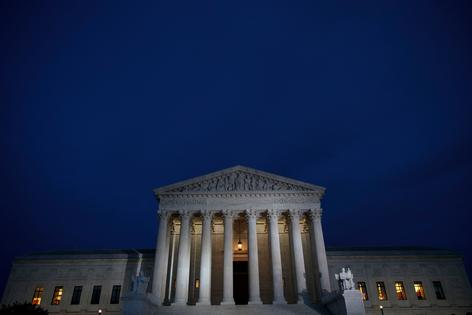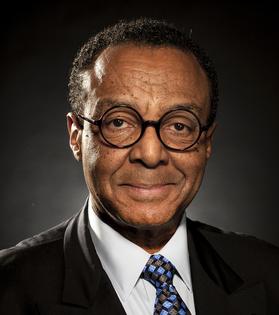Two cheerleaders and the F-I-G-H-T for free speech
In some ways, it makes perfect sense that the future of free speech on the internet could turn on the cases of a couple of high school cheerleaders.
Young people take it as their self-appointed duty to test boundaries, and the internet offers an abundance of boundaries to test.
In January the Supreme Court will consider whether to hear the case of one boundary-tester, a Pennsylvania cheerleader, suspended from her school’s cheerleading squad for obscene gestures and F-bombs recorded and broadcast on Snapchat.
Meanwhile outside court, Jimmy Galligan, a mixed-race college freshman in Virginia, ignited a separate internet furor over his lack of remorse for releasing a 4-year-old video showing a white classmate, Mimi Groves, now 19, using the N-word — even though the release has resulted in her withdrawing from her dream college this year.
In the video, taken as she was celebrating her new temporary driver’s permit, she declares excitedly to the camera, “I can drive, (N-word),” as if she was imitating a Black rap star.
Yes, as everyone should know by now, the word that starts with an “N” and rhymes with “trigger” should never be uttered, especially by someone who is not Black — and, just to be clear, if I had my way as a Black father, it would not be gratuitously uttered by Black people either.
Yet, like any other forbidden fruit, some people just can’t resist having a taste, even if only to see if they can get away with it.
After Groves shared the three-second clip with her friends, it was spotted by Galligan, now 18, who told The New York Times in a story about racial tensions at Heritage High School in Leesburg, Virginia, “I wanted to get her where she would understand the severity of that word.”
She undoubtedly got that message when the controversy stirred a backlash on the web that led to her withdrawal from the University of Tennessee at Knoxville, where she had joined the cheer team, which was the reigning national champion.
Now we have a backlash in conservative punditry and social networks against Galligan, the university and the political right’s longtime nemesis, The New York Times, for reporting a story that allegedly takes the side of Galligan. I’m trying not to do that, even though I can easily identify with how isolated a student of color can feel in a mostly white high school, since I, too, went through it.
Forgotten in a lot of that piling on is the central issue: How much responsibility do schools have to make sure students of all colors can have their complaints heard and acted upon?
And did the university give a fair hearing to Groves’ pleas that the three-second video, in which the N-word was not directed at anyone in particular, did not fairly represent who she is now?
Compared with the Virginia students, the Supreme Court’s Pennsylvania case sounds almost simple. The cheerleader known in pleadings as “B.L.” was punished for an image of her with raised middle fingers and text that included four F-bombs, all of it expressed in anger while shopping with friends after she failed to make the varsity cheerleading squad.
Although Snapchat’s snaps are famously ephemeral, B.L.’s selfie was preserved in a screenshot by another student and wound up in the hands of school coaches, according to court filings. The school suspended the student from cheerleading for a year, saying the punishment was needed to “avoid chaos” and maintain a “teamlike environment.”
Her attorneys argued and an appeals court agreed that she could not be punished for what she said outside of school grounds. Now it’s the Supreme Court’s turn to give the final word, if it so desires. But the underlying issues aren’t going away any faster than some students might wish their ill-advised Snapchats would.
I am not too coldhearted to appreciate the momentous importance that rejection from a cheering squad, among other setbacks, can hold on a student’s life. But, as we parents have had to warn our kids since the dawn of the social media age, always presume that whatever you put on the internet will stay there forever — and, sooner or later, it might find its way directly to those whom you least want to see it.
========
(E-mail Clarence Page at cpage@chicagotribune.com.)
©2020 Clarence Page. Distributed by Tribune Content Agency, LLC.
(c) 2020 CLARENCE PAGE DISTRIBUTED BY TRIBUNE MEDIA SERVICES, INC.










